21 Employee Perks that are Pivotal in Building a Happy & Engaged Workforce
Employee perks go beyond free snacks and gym passes—they shape culture, improve engagement, and help you attract top talent. Discover 21 meaningful perks that today’s workforce actually values, with tips on how to implement them smartly.
On this page
- What are employee perks?
- Why are employee perks important?
- When should you offer perks?
- Where should perks be integrated in the employee journey?
- Who benefits from employee perks?
- 21 Best employee perks and benefits at work
- Empuls: One platform to power all your perks
- Conclusion: Building a perk culture that actually works
Not all rewards need to come in the form of a paycheck. Sometimes, it’s the small, thoughtful perks that make employees feel truly appreciated. Flexible work hours, wellness programs, surprise lunches, or even an extra day off—these little extras speak volumes about how much a company values its people.
Employee perks aren’t just about keeping your team happy. They’re a strategic way to boost morale, reduce turnover, and build a culture where people actually want to stick around. Whether you’re a startup trying to attract talent or a growing company looking to retain your best people, the right perks can make all the difference.
In this blog, we’ll break down what employee perks really mean, why they matter more than ever, and how you can use them to create a workplace that stands out.
What are employee perks?
Employee perks are non-wage benefits offered by companies to make work more rewarding and life outside work a little easier. Unlike fixed compensation or statutory benefits like health insurance or paid time off, perks are often optional, flexible, and designed to enhance the overall employee experience.
They can range from small gestures—like free snacks or casual Fridays—to more structured offerings like wellness allowances, learning stipends, performance bonuses, or early access to earned wages.
In short, perks are the extra value-adds that show employees they’re appreciated not just as workers, but as people.
Why are employee perks important?
Employee perks are more than just extras—they reflect how much a company cares. When thoughtfully designed, they boost morale, reduce turnover, and help create a workplace people are proud to be part of.
- Show employees they’re valued: Perks signal appreciation beyond the paycheck, reinforcing that employees are more than just job titles.
- Support work-life balance: Flexible hours, parental leave, and remote work options give people the freedom to manage life alongside work.
- Promote holistic wellbeing: Covering health insurance, gym memberships, or retirement plans shows that you care about employees inside and outside the office.
- Attract and retain top talent: Over 50% of millennials say benefits influence their choice of employer—and 63% stay longer because of them.
- Stay competitive in hiring: If competitors offer better perks, candidates will likely choose them over you. Strong perks give you a hiring edge.
- Humanize the workplace: Supporting personal goals, family time, and mental health helps employees feel seen as people—not just headcount.
When should you offer perks?
Timing can make or break the impact of a perk. Offer it too early and it might go unnoticed. Offer it too late and it could feel like an afterthought. Understanding when to roll out employee perks helps build a culture that feels intentional, not performative.
Here are key moments to consider:
1. During hiring to attract top talent
Job seekers often compare roles based on perks just as much as salary. Offering unique or meaningful perks from the start—like remote work flexibility, L&D budgets, or wellness allowances—can give you a strong edge during recruitment.
2. After probation to reinforce commitment
Once new employees cross their probation period, introducing additional perks like monthly wellness stipends, flexible work hours, or skill-building credits shows appreciation and deepens trust.
3. During times of change or transition
Periods of uncertainty—like remote shifts, company restructuring, or post-pandemic recovery—can be stressful. Thoughtful perks, such as mental health support, no-meeting days, or free counseling, can ease anxiety and show that the company cares.
4. On milestone occasions
Birthdays, work anniversaries, promotions, or personal life events are great times to surprise employees with perks. It could be as simple as a gift card, a paid day off, or public recognition through platforms like Empuls.
5. As ongoing motivators
Some perks work best as habits rather than surprises. Gym memberships, healthy snacks, hybrid work models, and childcare support should be part of the employee experience year-round, not just during performance review seasons.
6. When morale feels low
You don’t need to wait for scheduled moments to show appreciation. If surveys or team leads spot signs of burnout or disengagement, that’s your cue. Perks like mid-week recharge breaks, team lunch budgets, or small appreciation gifts can lift spirits fast.
The best perks are timed with empathy. They anticipate needs, respond to the moment, and reinforce that the organization is tuned into what employees are experiencing—not just what’s on the calendar.
Where should perks be integrated in the employee journey?
Employee perks aren’t just rewards—they’re moments of connection that can be thoughtfully woven into each stage of the employee experience. When perks are mapped to key milestones and everyday touchpoints, they do more than offer convenience or joy. They shape how people feel about the workplace.
Here’s where perks can create real impact across the employee lifecycle:
1. At onboarding
First impressions matter. Perks introduced during onboarding—such as welcome kits, remote work setup stipends, or meal vouchers for the first week—immediately signal that the organization cares. These early gestures help new hires settle in faster and feel part of the team from day one.
2. During career development
Professional growth shouldn’t feel like a personal project. Offering access to online courses, certifications, mentorship programs, or conference budgets shows that the company is invested in employees’ long-term goals. These perks drive motivation and help retain top performers.
3. In day-to-day routines
Not all perks need to be formal. Daily perks—like a stocked pantry, casual dress code, shorter Friday hours, or mental health days—contribute to a more relaxed, human-centered work culture. Even something as simple as pet-friendly policies or team shoutouts can enhance everyday morale.
4. Around major life milestones
Celebrate employees beyond their job roles. Offer thoughtful perks during birthdays, work anniversaries, weddings, parental leave, or when moving homes. This personal touch adds emotional value and builds deeper loyalty.
5. During difficult moments
When employees face burnout, grief, or personal challenges, perks like paid mental health leave, access to therapy, or additional flexibility go a long way. It’s not about fixing things—it’s about showing up when it matters most.
6. At exit or re-entry points
Most companies forget the offboarding phase. But exit perks—such as access to career coaching or re-employment support—leave a lasting impression. For returning employees, re-onboarding perks can help ease them back into routines with energy and trust.
When perks are placed thoughtfully across the employee journey, they don’t just feel like extras. They become part of how people experience the company culture—day in and day out.
Who benefits from employee perks?
While employee perks are designed to support and motivate the workforce, their impact goes far beyond the individuals receiving them. When planned and delivered with intent, perks benefit the entire organization—creating ripple effects that touch every part of the business.
Let’s look at who truly gains from a well-executed perks program:
1. Employees
This one’s obvious—but worth detailing. Employees feel more valued, supported, and seen when perks align with their needs and lifestyles. From flexible schedules to wellness allowances, perks can boost morale, reduce stress, and contribute to overall job satisfaction.
2. HR teams
For HR leaders, perks are powerful tools for improving engagement, enhancing the employer value proposition, and addressing common retention challenges. A strong perks program gives HR the flexibility to personalize support and respond quickly to changing employee needs.
3. People managers
Team leads benefit from the increased motivation and productivity that perks help cultivate. When employees feel appreciated and well taken care of, managers spend less time firefighting morale issues and more time focusing on team growth and collaboration.
4. Company leadership
For executives, perks offer an indirect but effective way to drive performance and innovation. A well-engaged team is more productive, loyal, and aligned with the company’s mission. Perks can also reduce absenteeism and turnover—lowering replacement costs and protecting institutional knowledge.
5. The brand itself
A thoughtful perks strategy builds your reputation as a people-first employer. This not only helps in attracting top talent but also enhances public perception and trust. Happy employees often become vocal advocates, improving your brand’s visibility through authentic stories and testimonials.
6. The culture as a whole
Finally, perks strengthen your internal culture. They help build psychological safety, encourage appreciation, and support a sense of belonging. In distributed or hybrid setups, perks can even become a critical connector—bridging the gap between remote workers and company culture.
So while perks may seem like small gestures, they’re strategic investments that uplift everyone—from the newest hire to the leadership team.
21 Best employee perks and benefits at work
Here are some of the best employee perks and benefits that an organization simply can't miss if it wishes to build an enthralling culture.
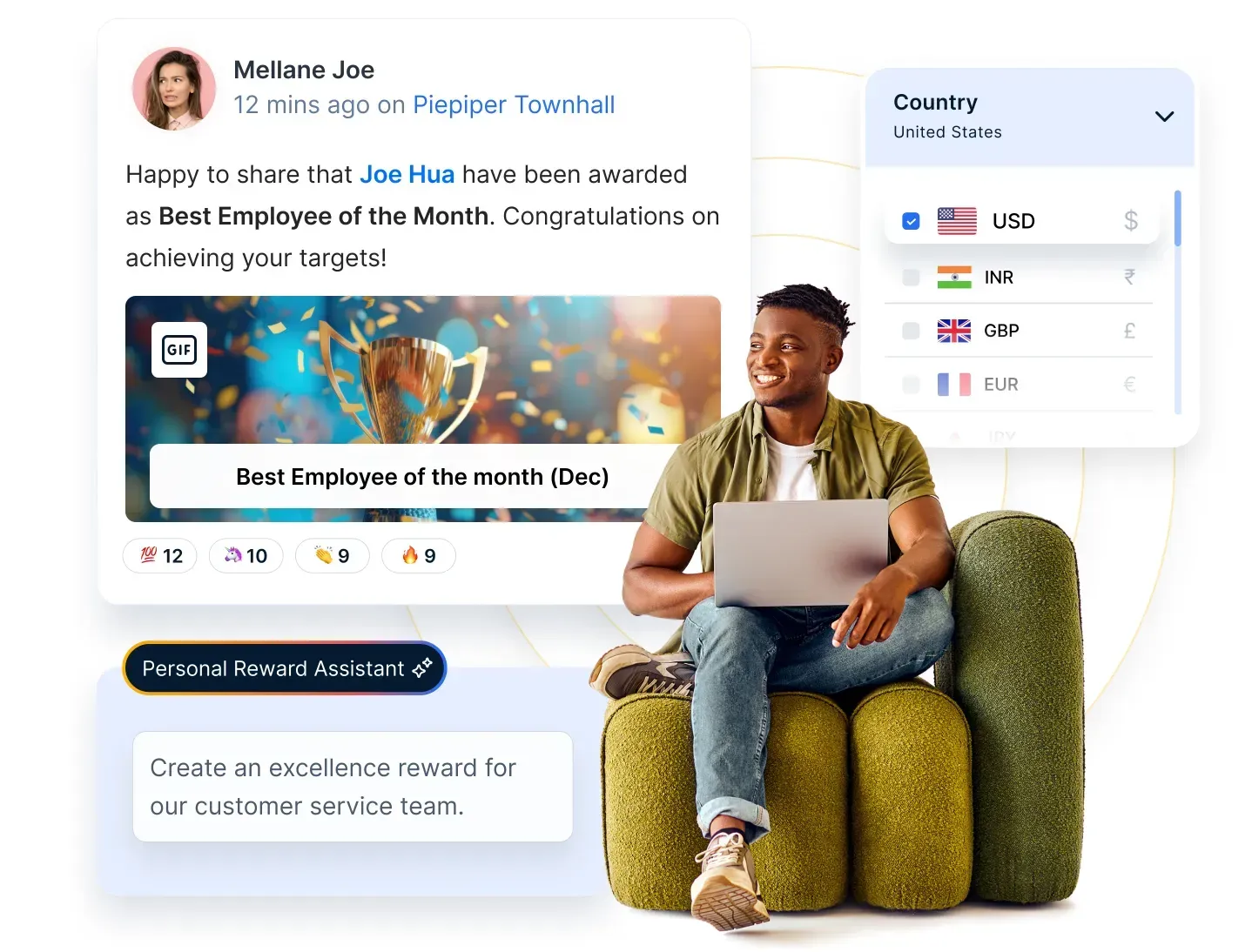
1. Reward and recognition programs
A consistent, transparent recognition program goes beyond applause—it shapes a culture of appreciation. When employees feel seen for their hard work, they’re more motivated, loyal, and emotionally connected to their roles.
Platforms like Empuls help scale this effort with automated recognition, point-based rewards, and peer appreciation, turning everyday wins into moments of pride. From spot bonuses to celebrating work anniversaries, this perk uplifts both individuals and teams—without requiring a massive budget.
2. Work-life integration
Work-life integration means building an environment where employees can bring their full selves to work. This includes offering flexible work hours, mental wellness days, and inclusive policies that support identity expression and psychological safety.
Rather than treating work and life as separate entities, companies must design workflows and spaces that allow employees to transition between personal and professional needs with ease. It’s not just about snacks in the pantry—it’s about creating a workplace that fits into life, not the other way around.
3. Employee perks and discounts
Access to exclusive perks—like discounted gym memberships, travel deals, grocery savings, or wellness products—makes a visible difference in an employee’s daily life. These aren't just money-saving benefits; they elevate the employer brand and create a sense of belonging.
With platforms like Empuls, employees can explore thousands of curated discounts across retail, health, education, and more—directly from one easy-to-use dashboard. These perks signal: “We care about your life beyond your job description.”
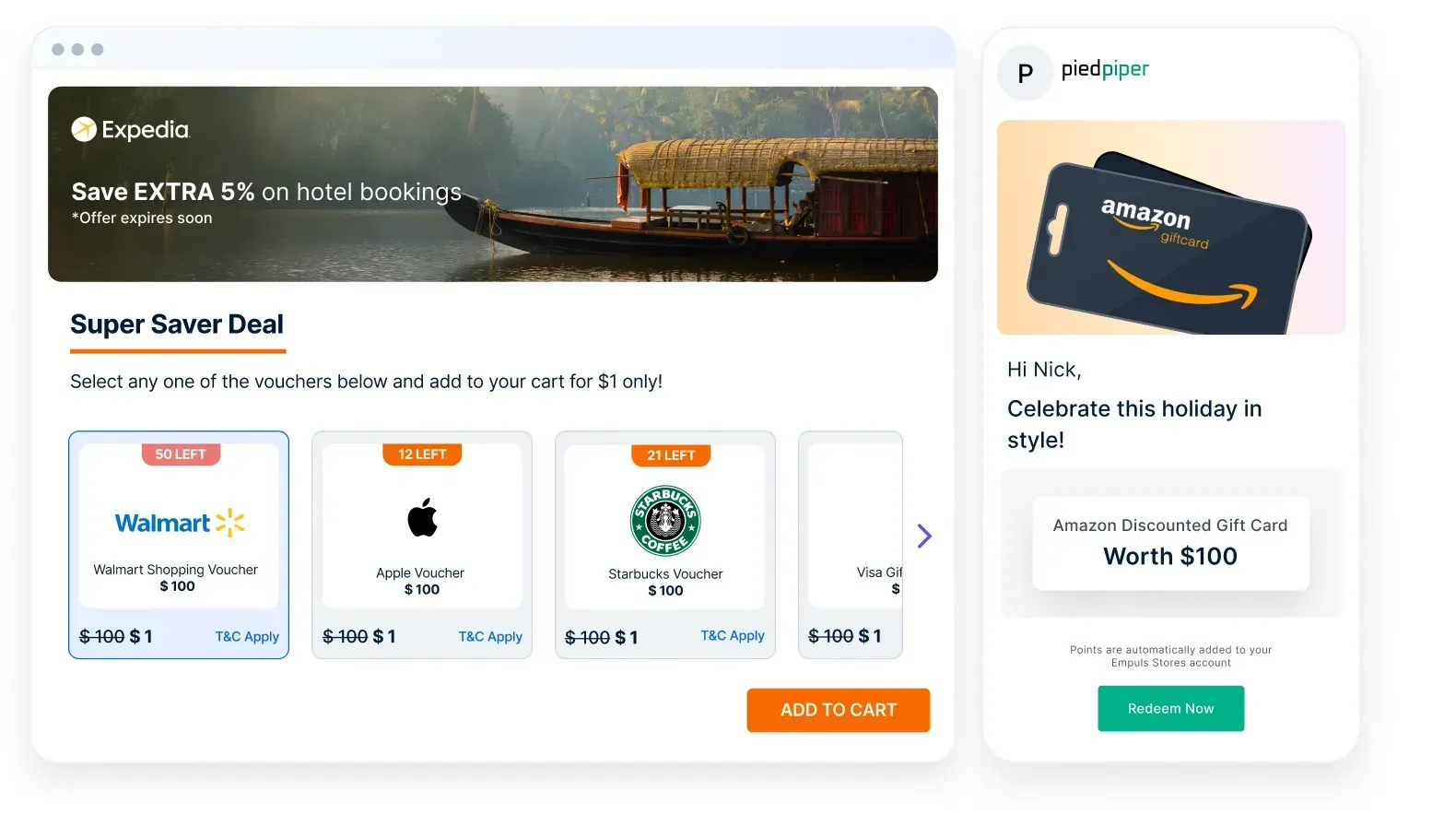
4. Performance bonus
In most cases, monthly salaries are enough to get the job done, but great things happen when a performance bonus is in the books. Monetary rewards directly relate to the rise in efforts and, ultimately, results.
It is key to link their emotions with monetary rewards and engage them in accomplishing the task at hand the workforce motivated.
However, the deal with performance bonus is that it’s the first to be scratched off in tumultuous times. This mistake, which is often made to cut costs, cuts down the workforce’s efforts, and the organization ends up suffering more than what it saved by cutting those costs. This case study from Harvard Business Review signifies the importance of performance bonuses in bad times.
With performance bonuses, rewards are tied to results, making it a terrific perk to give out. The IRF states that team incentives can increase productivity by 44 percent. Performance bonuses and incentives can easily be gamified with platforms.
5. Unlimited paid sick days
Sure, anyone’s initial thought would be that an employee can lie n number of times and get their sick leaves approved, but it shouldn’t be the case if your organization is built on the cornerstone of integrity and trust.
On the flip side, however, unpaid sick days carry a huge threat to the organization and the allegedly sick employee.
The American Psychological Association has researched to find that workers without paid sick leaves are depressed and suffer higher odds of anxiety, stress, and even episodes of schizophrenia.
A separate study by National Partnership for Women & Families states that paid sick days improve public health with reduced risk of disease spread through contamination of commonly used workspace. This evidence states that even though it might take some precautions, unlimited sick days are pivotal for the common good.
6. Retirement plan contributions
Employees today want more than a paycheck—they want a future they can count on. A strong retirement plan (such as a 401(k) match or provident fund contribution) shows that the company is thinking beyond short-term productivity.
This perk boosts long-term retention, especially when combined with financial wellness content and planning tools. Offering even a modest contribution goes a long way in building trust and loyalty.
7. Tuition reimbursement
When companies invest in learning, they don’t just upskill their workforce—they build a growth-focused culture. Tuition reimbursement helps employees pursue certifications, degrees, or upskilling programs without financial strain.
It’s a win-win: employees gain career momentum, while companies benefit from sharpened minds and new perspectives.
Bonus: with tools like Empuls, employees who complete educational milestones can be recognized instantly—adding another layer of motivation.
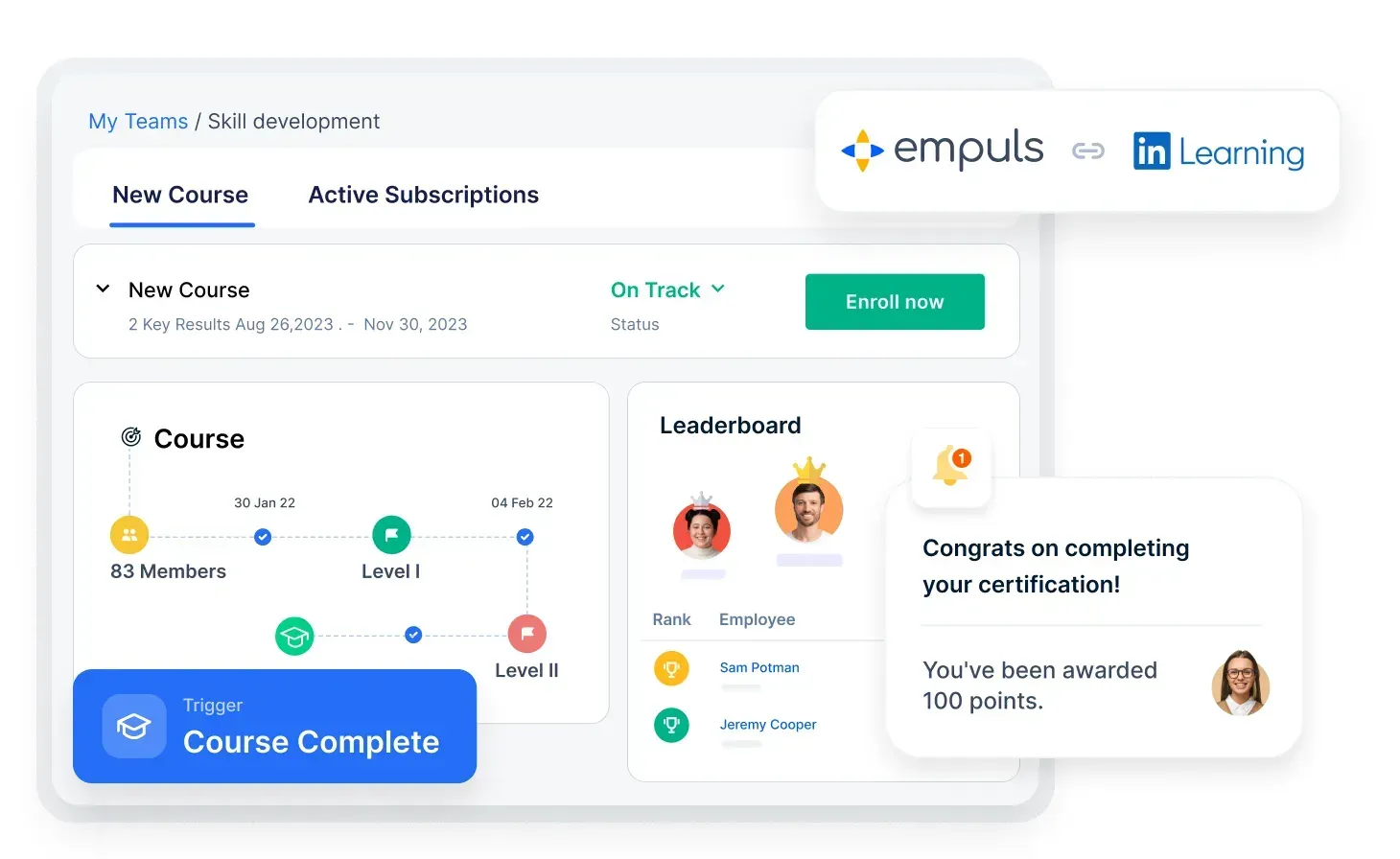
8. Gym memberships
Encouraging physical wellness through paid or subsidized gym memberships promotes a healthier lifestyle, better focus, and fewer sick days. But it’s more than that—it shows the company values their team’s wellbeing outside the workplace.
You can go a step further by integrating fitness challenges into platforms like Empuls and recognizing top participants with wellness rewards or gift vouchers—making health a shared goal.
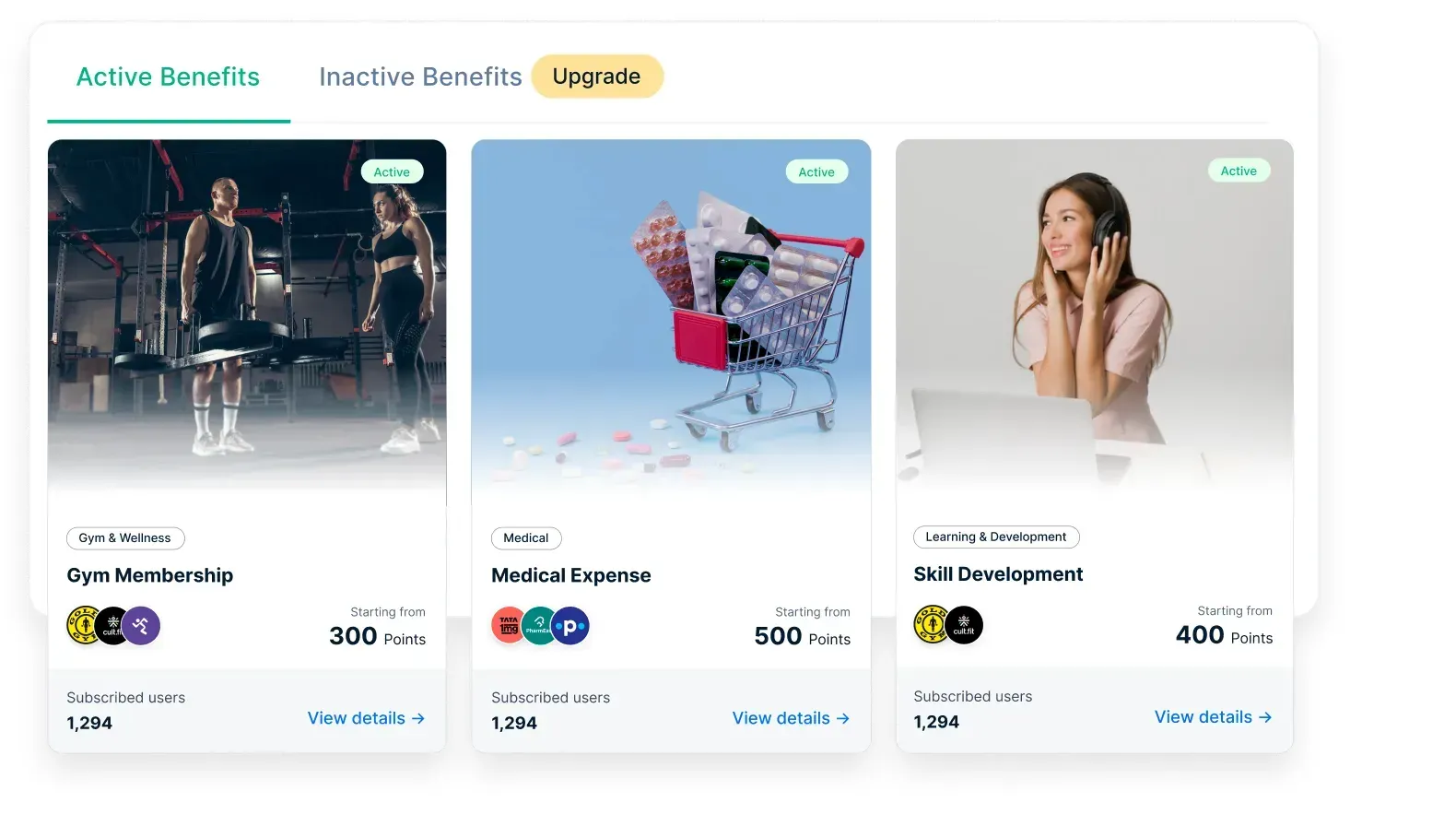
9. Commute assistance
Daily travel time eats into an employee’s energy and morale. Providing assistance in the form of fuel cards, shuttle services, or transportation stipends can significantly reduce stress and improve punctuality.
It’s one of those perks that doesn’t cost much to the company but has a big impact on employee satisfaction—especially for those traveling long distances or using public transport regularly.
10. Unlimited vacation days
Offering unlimited vacation time may sound radical, but it’s really about giving employees the freedom to manage their time like adults. It shows trust, promotes better work-life rhythm, and encourages people to recharge properly.
To make it work, companies must also normalize taking that time off. Use tools like Empuls to set company-wide reminders, highlight time-off champions, or gamify the most well-rested team of the quarter.
11. Snack bars & vending machines
Fueling your team doesn’t need to stop at lunch. Access to healthy snacks and drinks throughout the day keeps energy levels up and creates a workplace that feels more like a community. Stocked snack stations and vending machines aren’t just about convenience—they send a message: we care about your comfort.
With Empuls, you can even reward employees with snack coupons tied to recognition campaigns or wellbeing goals.
12. Learn-at-work programs
Whether it’s subscriptions to online platforms, micro-learning modules, or instructor-led workshops, supporting continuous learning on the job is a long-term win. Employees value the opportunity to learn without stepping away from work.
With platforms like Empuls, you can tie course completions to recognition badges and skill-based reward milestones, gamifying the learning journey.
13. Lounge rooms to recharge
Not every break needs a purpose. Sometimes, just offering a quiet room with nap pods, recliners, or soft music can help employees reset during stressful days. Relaxation spaces improve focus, mood, and overall productivity. Bonus: Empuls allows you to collect feedback through pulse surveys to see if wellness spaces are actually helping recharge your people.
14. Supplemental insurance
Beyond the standard health plan, offering add-ons like pet insurance, spousal life coverage, or support for dependents with special needs shows deeper care. These policies ease financial pressure and show employees that their entire family is valued—not just their 9-to-5 presence.
15. Onsite or embedded banking support
Partnering with banks to set up kiosks or digital banking helpdesks in-office saves employees time and mental energy. It allows them to sort out loans, savings plans, or salary account services without needing to step out during work hours. It’s a quiet but effective perk—especially appreciated by working parents or those in high-responsibility roles.
16. Work-from-home amenities
Remote work is here to stay, but doing it right requires support. Reimbursing internet costs, offering ergonomic equipment, or providing a monthly remote work stipend keeps productivity high and health intact.
With Empuls, you can create campaigns to celebrate top-performing remote employees and reward them with flexible benefit options.
17. Parental and caregiver leave
Childcare, elder care, or simply being present for a loved one—life happens, and employees shouldn’t feel punished for that. Offering generous, flexible leave policies for parents and caregivers is not just empathetic—it’s strategic. Empuls can help reinforce this by spotlighting caregiver stories or automating appreciation messages when employees return from long leaves.
18. Volunteer-for-leave programs
Exchange community impact for paid time off. Allowing employees to swap volunteer hours for vacation days builds a purpose-driven culture. Whether they’re cleaning beaches or mentoring youth, this kind of perk builds pride and positions your brand as one with a conscience. Empuls can track participation, create leaderboards, and issue badges for social contribution.
19. Team bonding events and experiences
Team lunches, weekend getaways, or paintball sessions—shared memories often lead to stronger collaboration. When teams laugh together, they work better together. These events are also perfect moments for Empuls to shine—by helping recognize top team performers or triggering celebratory rewards during or after the events.
20. Flash fitness sessions
Surprise your employees with mid-week yoga, dance sessions, or desk workouts. Short, energetic sessions reduce stress, boost endorphins, and energize the work floor. This isn’t just a feel-good perk—it’s an investment in health. With Empuls, participation can be tracked and celebrated with badges, making fitness a fun challenge, not a chore.
21. Employee stock options
Nothing gives the feeling of ownership more than owning a part of company stocks that you work with. Most employee stock options are distributed after employees complete a certain tenure and reach a given Deion. There are options to change the remuneration to salary + stock options.
The organization can offer employee stock ownership plans or employee stock purchase plans– the difference being that stock ownership is given to the employees. In contrast, in the latter cases, one can purchase stocks at discounted prices.
Empuls: One platform to power all your perks
Offering perks is one thing—delivering them consistently, meaningfully, and at scale is another. That’s where Empuls steps in. It simplifies how organizations manage, distribute, and personalize employee perks, helping HR teams build a culture of care without adding to their admin load.
Empuls brings all your perks under one roof, making it easy to offer value across every employee touchpoint—from onboarding to retirement.
Here’s how Empuls helps elevate your perks strategy:
✅ Centralized perks and discounts hub
Give employees access to 20,000+ brand discounts on categories like wellness, dining, travel, learning, and retail. These perks are curated for both in-office and remote teams and are easy to access on mobile or desktop.
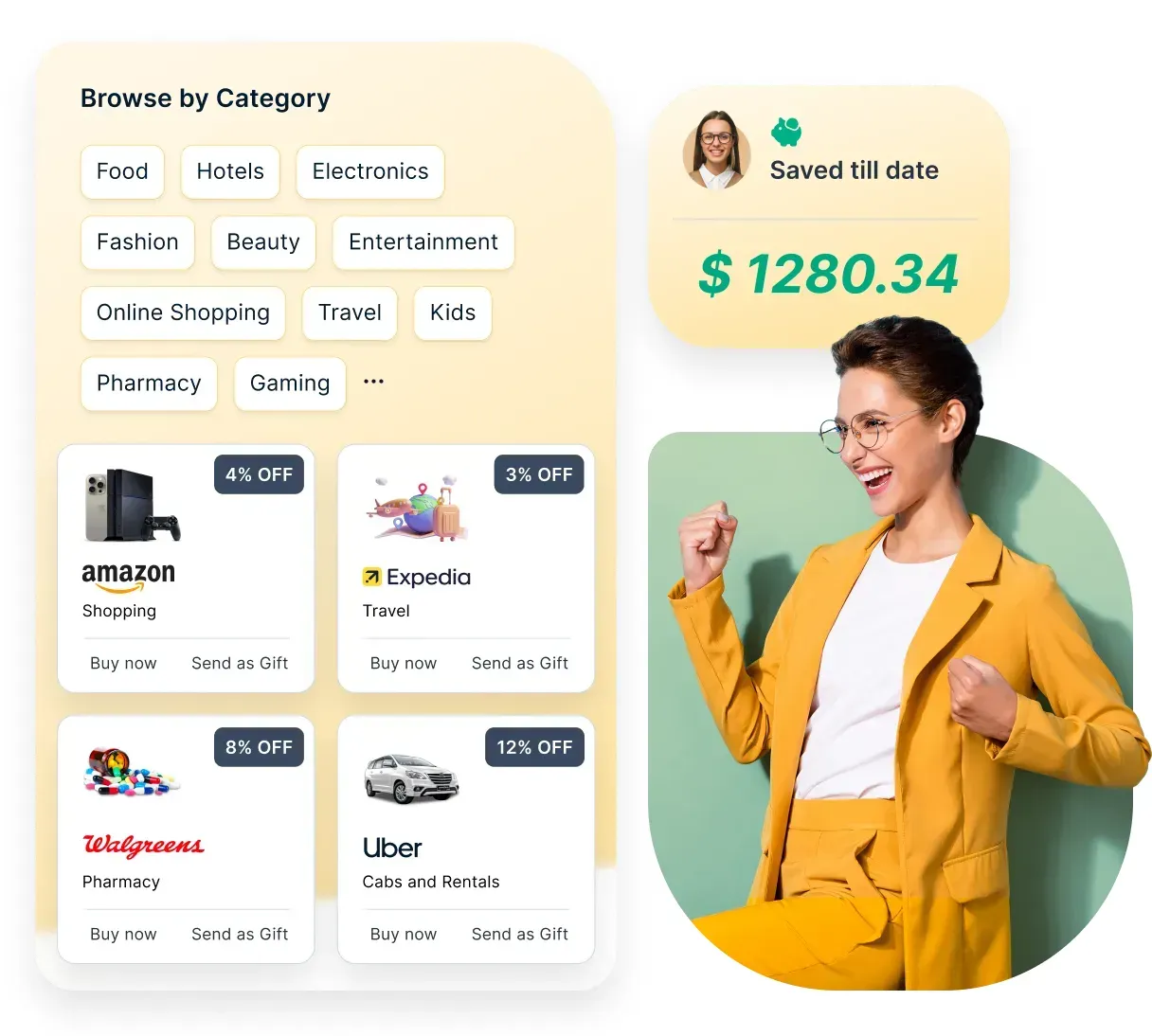
✅ Tax-free and compliance-friendly benefits
Empuls enables companies to offer tax-saving benefits like food allowances, fuel reimbursements, and leave travel allowances—all aligned with local compliance requirements. Employees save more, and HR teams get peace of mind.
✅ On-demand salary access with early wage
Support employees during cash crunches without disrupting payroll cycles. With Empuls Early Wage Access, your team can withdraw earned wages before payday—discreetly and instantly. This builds financial wellbeing and trust, especially during emergencies.
✅ Integrated rewards and recognition
Layer perks into everyday recognition. Empuls lets you award points, badges, and gift cards as part of peer-to-peer recognition or performance celebrations—so perks become part of your daily culture, not just a quarterly gesture.
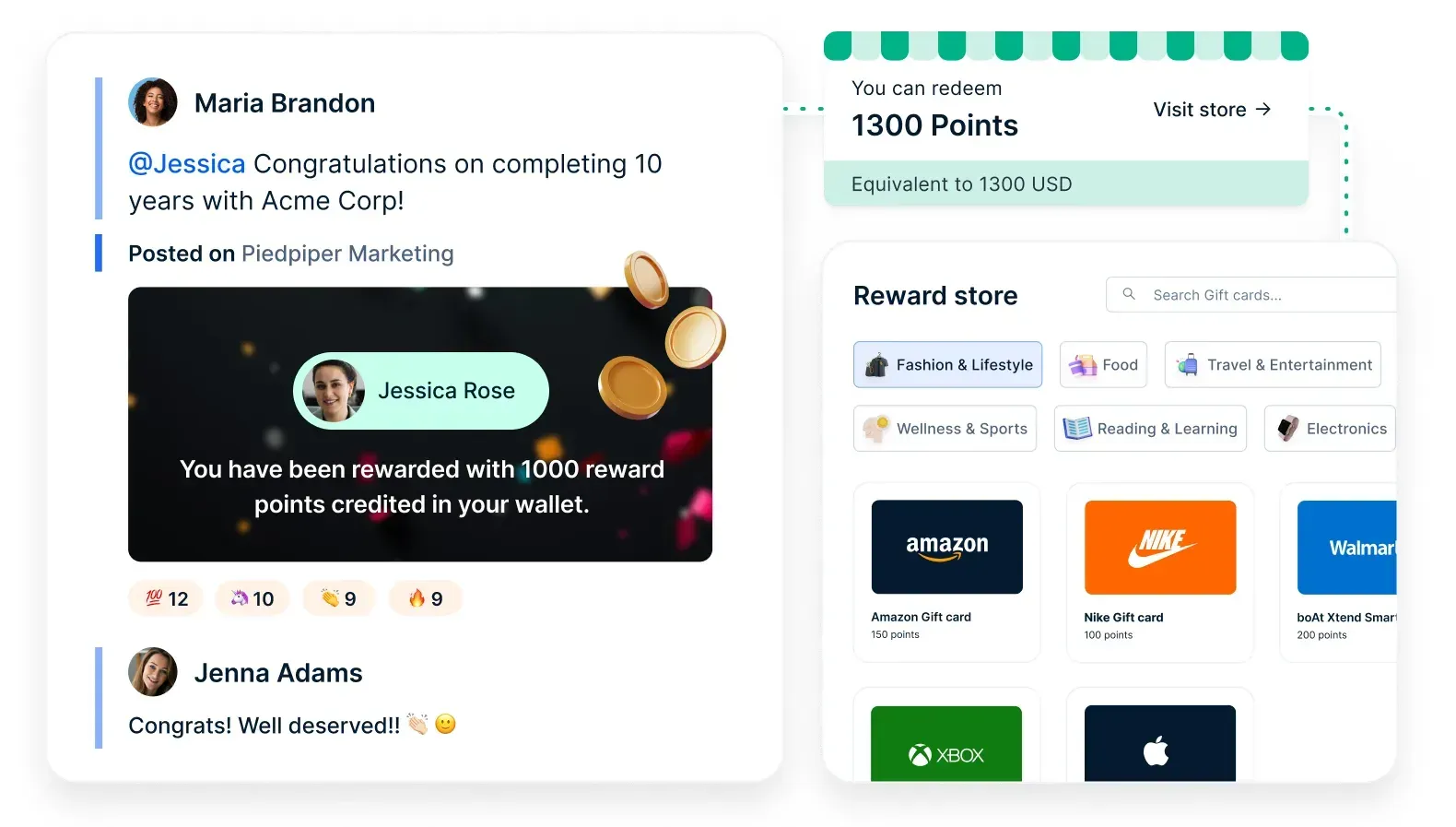
✅ Custom campaigns for special moments
Celebrate birthdays, work anniversaries, or team wins with automated campaigns. Empuls makes it easy to reward employees with personalized perks tied to life or career milestones.
Empuls turns your perks from passive policies into active engagement drivers. It gives employees visibility, choice, and immediate value—while helping HR stay consistent, compliant, and connected.
Conclusion: Building a perk culture that actually works
Employee perks aren’t just a nice-to-have—they’re a reflection of how much a company pays attention to its people. When thoughtfully designed and well-timed, perks become more than just extras. They turn into quiet moments of recognition, daily motivators, and culture-builders.
In a world where salaries alone no longer drive retention, perks are your chance to show you understand what matters to your team—inside and outside of work. Whether it's flexibility, learning, wellness, or simply feeling seen, the right perk at the right time makes employees feel genuinely valued.
But don’t just add perks for the sake of it. Start small, ask your people what they need, and stay consistent. Use tools like Empuls to make perks visible, easy to access, and aligned with your culture. Because when perks feel personal and purposeful, they stop being perks—and start becoming proof that your people matter.


















